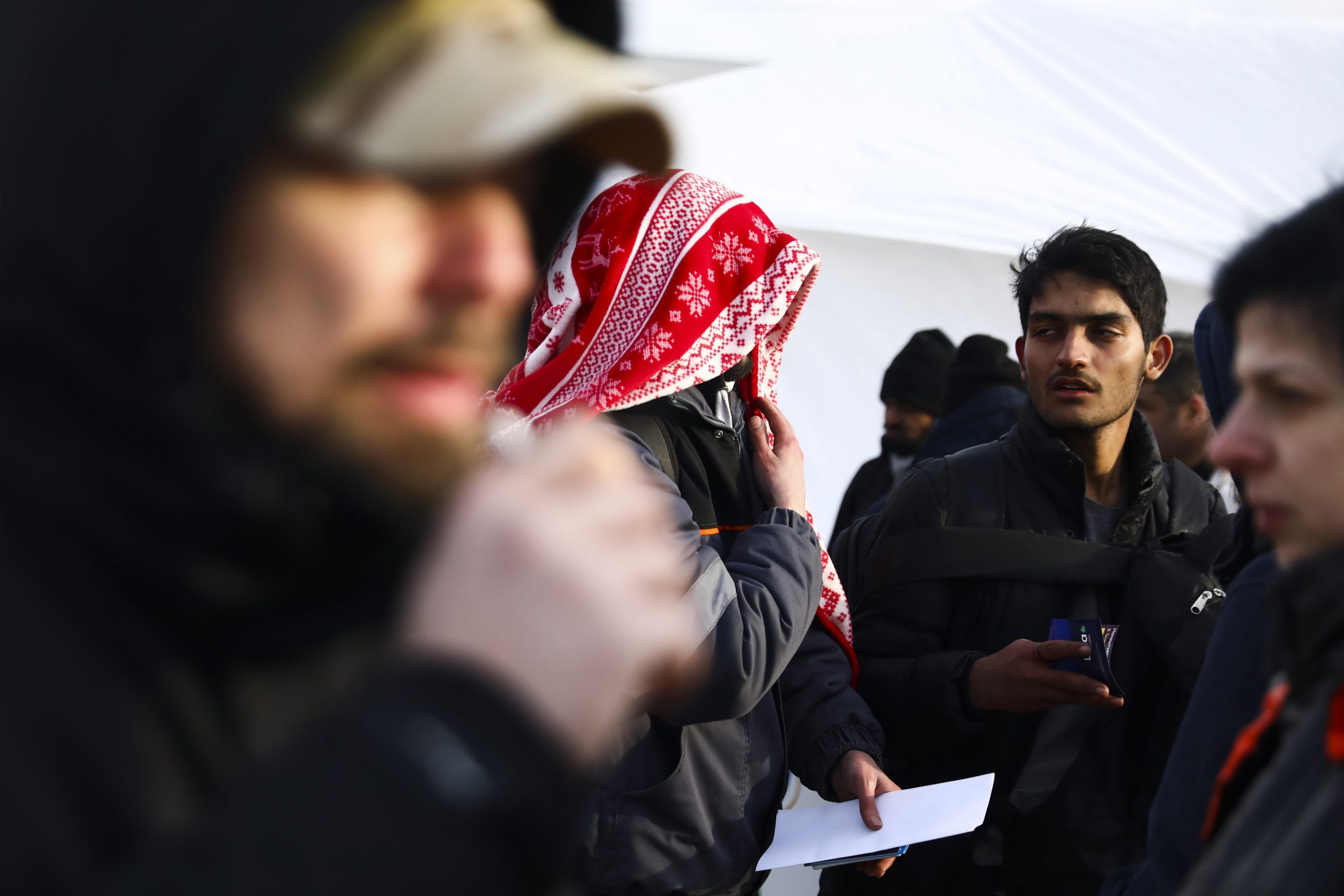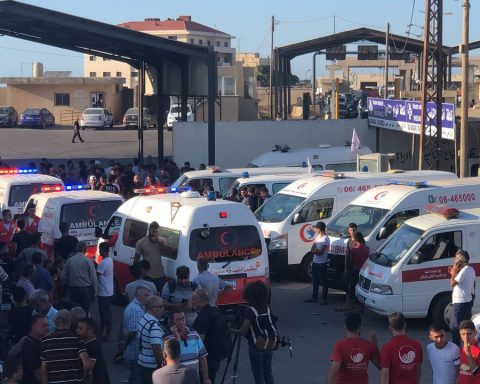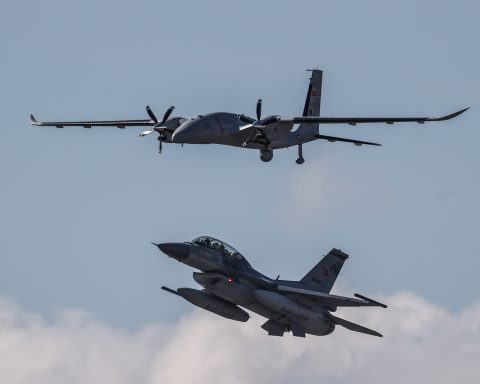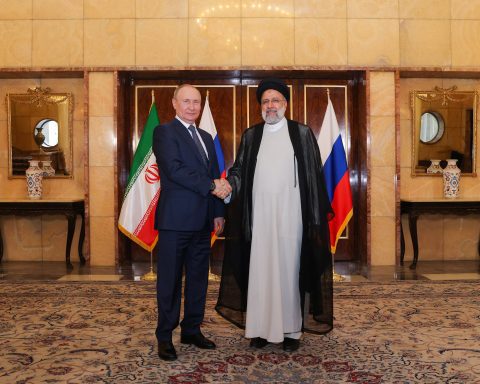Scornful statements by some French and American network commentators on the Russia-Ukraine war shocked their viewers. However, these comments did add to the narrative of Islamophobia, and xenophobia and politics in the West. For instance, in France, some news commentators and politicians are implying xenophobia, arguing that Ukrainian migrants are Europeans, civilized, and Christians, hence it’s our responsibility and humanitarian solidarity to welcome these migrants. Unlike last fall, when Iraqis, Syrians, and Afghans attempted to flee to Europe seeking safety, they were seen as mean and represented an imminent threat to Europe’s national security and identity.
Immediately, European leaders and politicians called Ukrainians fleeing their country refugees. They need humanitarian protection and aid. Marine Le Pen, the candidate of the RN far-right party for the 2022 French presidential election, asserted to apply the Geneva Convention, the 1951 Refugee Convention, and its 1967 protocol, which state the principle that a refugee should not be returned to his country of origin if lifesaving threats, human rights violations, and persecution risks persist.
What do double standards and hypocrisy look like?
While Syrians were also fleeing a war that was orchestrated by Russian President Vladimir Putin, who destroyed ten times their cities, Syrians tried to flee from the atrocities of Bashar al-Assad’s TNT barrels, the Russian army, and its para-military mercenaries, the Wagner Group. The shocking comments of white news commentators and politicians are drawing the line of systemized racism, in the sense that these comments are not just catchy semantic phrases anymore. There were news reports showing how Ukrainians were pushing aside black “refugees” to get onto trains. Thus, the color of the skin, as well as religious and ethnic identities, make a big difference in the complex equation of white civilization.
This leads to the double standards of the media and politicians in the West. Americans have demonized people of color, particularly African-Americans, using them as boogie man figures to whip up fear. In the 60s, this shifted to the “Arab Terrorist” stereotype, hyping the hijackings and the armed resistance in Palestine in the 70s, the 80s, and early 90s. This gradually shifted later to the “Islamic Terrorist” model, starting with the Muslim resistance in Afghanistan, fighting the Soviets, resistance groups in the first Intifada, Shi’a Islamist and secular groups in the Lebanese civil war, made whole by the 9/11 attacks of 2001.
Consequently, then-US President George W. Bush and his foreign policy ideologies invaded Afghanistan in 2001 with the aim to dismantle al-Qaeda, and in 2003, shock-and-awe military operations in Iraq left millions of Afghans and Iraqis homeless, hundreds of thousands killed, wounded millions, and resulted in hundreds of thousands to flee the country. Not to mention, the French harsh colonization in Algeria that left millions killed and a deep acculturation process that Marine Le Pen and Eric Zemmour want to apply to Muslims and Arabs, and a categorical refute of Arab and Muslim migrants if they get elected. In Zemmour’s mind, France is not threatened by President Putin, but by the big replacement and the “Islamization” of his country.
Economic anxiety or white identity protection paranoia
The assumption that white French and American commentators are white, civilized, and Christians are explicit. Those commentators and politicians never called the invasion of Iraq, Algeria’s colonization, and most recently Russian bombardments in Syria on civilians, are not uncivilized.
Nonetheless, early human civilization and Catholic reform took place in Iraq and Algeria, respectively. Bureaucracy and the rule of law were invented by Hammurabi, and Algeria was the birthplace of Saint-Augustine.
Yet, with economic instability post-COVID-19’s first wave, xenophobic statements and actions have increased in the West, creating a sentiment of fear that politicians and commentators base on to make the “other”, whose color and religion are different, responsible for their pains.
European leaders who are intellectually aware of xenophobia but less so of Islamophobia are a trend that nationalists exploit in every election. It thrives when refugees and migrant flows knock at the European doors, but this time the nationalists are opening their doors to their white co-religionists. According to the UNHCR, one million people crossed to the neighboring countries of Poland, Romania, and Moldova in a very “civilized” matter in terms of organization, logistics, and coordination, unlike the apocalyptic images shown by European media last fall, showing angry brown Muslim men, helpless women, and despairing infants crossing barbed wire fences, defying the wooden sticks of the “host” countries’ national guards.
Suddenly, European leaders are demonstrating good coordination within the departure country and the host countries, dealing with the mass flow as if it were a fervent Christian pilgrimage event.
The media and politicians’ incoherent message
In a non-white and black world affairs paradigm, and with white narrative storyline domination in the media, the noble message of humanitarian action would be summed up in a sense of selective human policy. Decades have passed since European leaders and populations have been watching the suffering of brown people at home caused by wars, corruption, and injustice — like Ukrainians who want to live free in their country. Yet, a humanitarian right turned into a complex societal theme — letting politics and ideology influence the decision-makers, using the migrants and often in a confusing stance with legal immigration that is the backbone of Europe’s economy as an attractive market product at any political season.
The poor “debate” in France’s 2022 presidential campaign is the best example to understand how politicians are using migrants/immigration as the source of the French malaise.
One cannot evoke the question of the migrants and its humanitarian and national security repercussions without making a parallel with Turkey, a country that is doing a great job according to former UNHCR Officer, the current UN Secretary-General Antonio Guterres. Migrants have passed four million in number, making Turkey the country hosting the highest number of refugees in the world; about 94 percent of Syrian refugees remain outside of urban refugee camps.
With ECHO, EU Aid has contracted 45 humanitarian projects with 19 humanitarian organizations, which are working in close cooperation with Turkish partner organizations to provide support to the most vulnerable refugees, even though the so-called refugees are not legally refugees, but are still considered as guests by the Turkish government. Nonetheless, the government is offering protection and aid, to some a special integration and post-integration programs such as the right to apply for a work permit, legal residency, and eventually citizenship.
Yet, European politicians and the media are still complaining that Ankara is using the migrant card as a geopolitical wild card to pressure further European leaders. On the contrary, Ankara is taking its moral responsibility, and hosting five million migrants across the Middle East, eventually, it will offer humanitarian aid and is even willing to take Ukrainians to settle in Turkey.
The norms and spirit of the 1951 Geneva Convention on refugees have become irrelevant, like international and regional organizations such as the UN and the Arab League. It’s morally wrong to profile refugees, who need international protection and aid accordingly, without any discrimination. Yet, the recent statements of white news commentators and politicians have unmasked the selective feelings of humanity in Europe and its leaders in the ongoing Russia-Ukraine war, where the same Europe did not take a firm position toward white European civilized Muslims in Bosnia.














